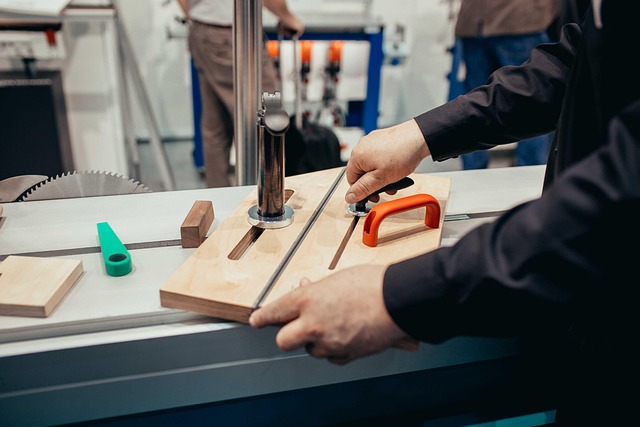Carpenter Jobs in Ireland – Workshop and Site Roles for 2025
Carpenter roles in Ireland may involve cutting, assembling, and installing wooden structures or furniture. Tasks are usually guided by detailed plans and safety standards, with work taking place in workshops or on construction sites, depending on project requirements.

Types of Carpentry Roles in Ireland
Carpentry in Ireland broadly divides into two main categories: workshop-based and site-based positions. Workshop carpenters typically work in controlled environments, focusing on precision tasks like cabinetmaking, furniture production, and architectural woodworking. Tasks may include measuring, sawing, and fitting wood to create finished products before installation. Site-based carpenters, meanwhile, work directly on construction projects, handling everything from framing and formwork to finishing carpentry. The Irish market currently needs both specialists, with particular demand in residential construction and commercial fit-outs as the country’s development continues through 2025.
Essential Job Responsibilities and Tasks
Regardless of setting, certain core responsibilities define carpentry work. Carpenters regularly interpret blueprints and technical drawings, select appropriate materials, and execute precise measurements. Daily tasks may include measuring, sawing, and fitting wood according to project specifications. Most carpenters operate various power tools and machinery while maintaining strict safety protocols. Workshop carpenters often focus on detailed joinery and finishing work, while site carpenters frequently handle structural elements, formwork, and installation. Both roles require strong problem-solving abilities and spatial awareness to transform design concepts into physical structures.
Career Specialization Options
The carpentry profession offers several specialized paths that carpenters might pursue as their careers develop. Some roles focus on building new structures, others on repairs of existing buildings. Formwork carpenters specialize in creating temporary structures that hold concrete until it hardens. Finish carpenters excel in detailed interior work like trim, cabinetry, and decorative elements. Restoration carpenters develop expertise in historical techniques to maintain heritage buildings, a particularly valued skill in Ireland with its rich architectural history. As the construction sector embraces sustainability, eco-friendly carpentry specialists who understand environmentally responsible materials and methods are increasingly sought after for green building projects.
Work Environment and Schedules
Work conditions vary significantly between workshop and site roles. Workshop environments offer protection from weather conditions, consistent lighting, and established safety infrastructure. Site-based carpenters face more variable conditions, including outdoor work in Ireland’s sometimes challenging weather. Work schedules follow construction timelines, which can mean early starts and occasional weekend work to meet project deadlines. During peak construction seasons, overtime opportunities often increase. Some larger projects may require shift work, while others follow standard business hours. Flexibility remains important, especially when projects face unexpected delays or require accelerated completion.
Training Requirements and Career Development
The path to becoming a qualified carpenter in Ireland typically begins with an apprenticeship lasting approximately four years, combining on-the-job training with classroom instruction. Training may cover tool safety and advanced carpentry skills, from basic techniques to specialized applications. Apprentices earn while they learn, gradually increasing their responsibilities and compensation as skills develop. Beyond apprenticeships, carpenters can pursue advanced certifications in specialties like heritage restoration, CNC machinery operation, or passive house construction. Many carpenters eventually progress to supervisory positions, become independent contractors, or establish their own businesses, with experience commanding higher pay rates.
What to Expect When Applying for Carpentry Positions
Applicants often ask about equipment and site conditions when considering carpentry positions. Most employers provide larger power tools and specialized equipment, though personal hand tools are typically expected. Safety training and certification requirements vary by employer and project type, with larger sites often requiring Safe Pass certification and manual handling training. Competitive candidates should prepare portfolios showcasing previous work, especially for specialized positions. Interview questions frequently focus on problem-solving abilities, technical knowledge, and experience with specific construction methods. Physical fitness remains important, as carpentry involves standing for extended periods and regularly lifting materials weighing up to 25kg.
Salary and Compensation Trends
Carpenter salaries in Ireland vary based on experience, specialization, and location. Entry-level carpenters typically earn between €30,000 and €35,000 annually, while those with 5+ years of experience command €40,000-€50,000. Specialists in high-demand areas like heritage restoration or passive house construction may earn significantly more. Dublin-based positions generally offer 10-15% higher wages than rural areas, reflecting the higher cost of living.
| Experience Level | Average Annual Salary | Hourly Rate |
|---|---|---|
| Apprentice | €22,000-€28,000 | €11-€14 |
| Newly Qualified | €30,000-€35,000 | €15-€18 |
| 5+ Years Experience | €40,000-€50,000 | €20-€25 |
| Specialist/Foreman | €50,000-€65,000 | €25-€33 |
Prices, rates, or cost estimates mentioned in this article are based on the latest available information but may change over time. Independent research is advised before making financial decisions.
Future Trends in Irish Carpentry
As we approach 2025, several trends are reshaping carpentry in Ireland. Sustainability dominates many construction projects, with increased demand for carpenters familiar with eco-friendly materials and methods. Technological integration continues as digital tools like BIM (Building Information Modeling) become standard on larger projects. Prefabrication is growing, with more components built in workshop settings before on-site assembly, potentially shifting the balance between workshop and site roles. These developments suggest carpenters who combine traditional skills with modern technical knowledge will be particularly valuable as the industry evolves to meet Ireland’s changing construction needs.




